Stations of the Cross
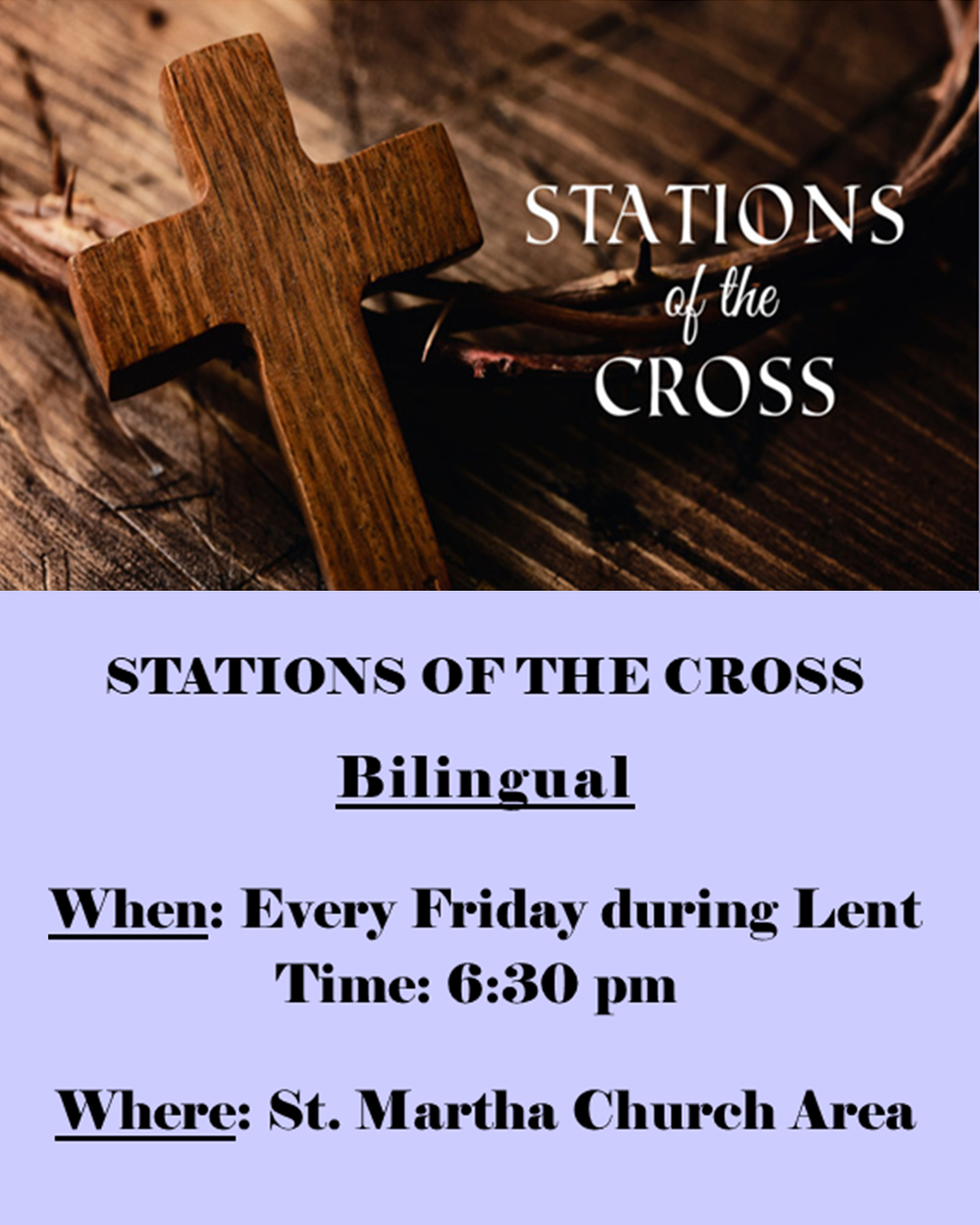
Bilingual
Begins on Friday February 20th
- When: Every Friday during Lent
- Time: 6:30 pm
- Where: St. Martha Church Area

Bilingual
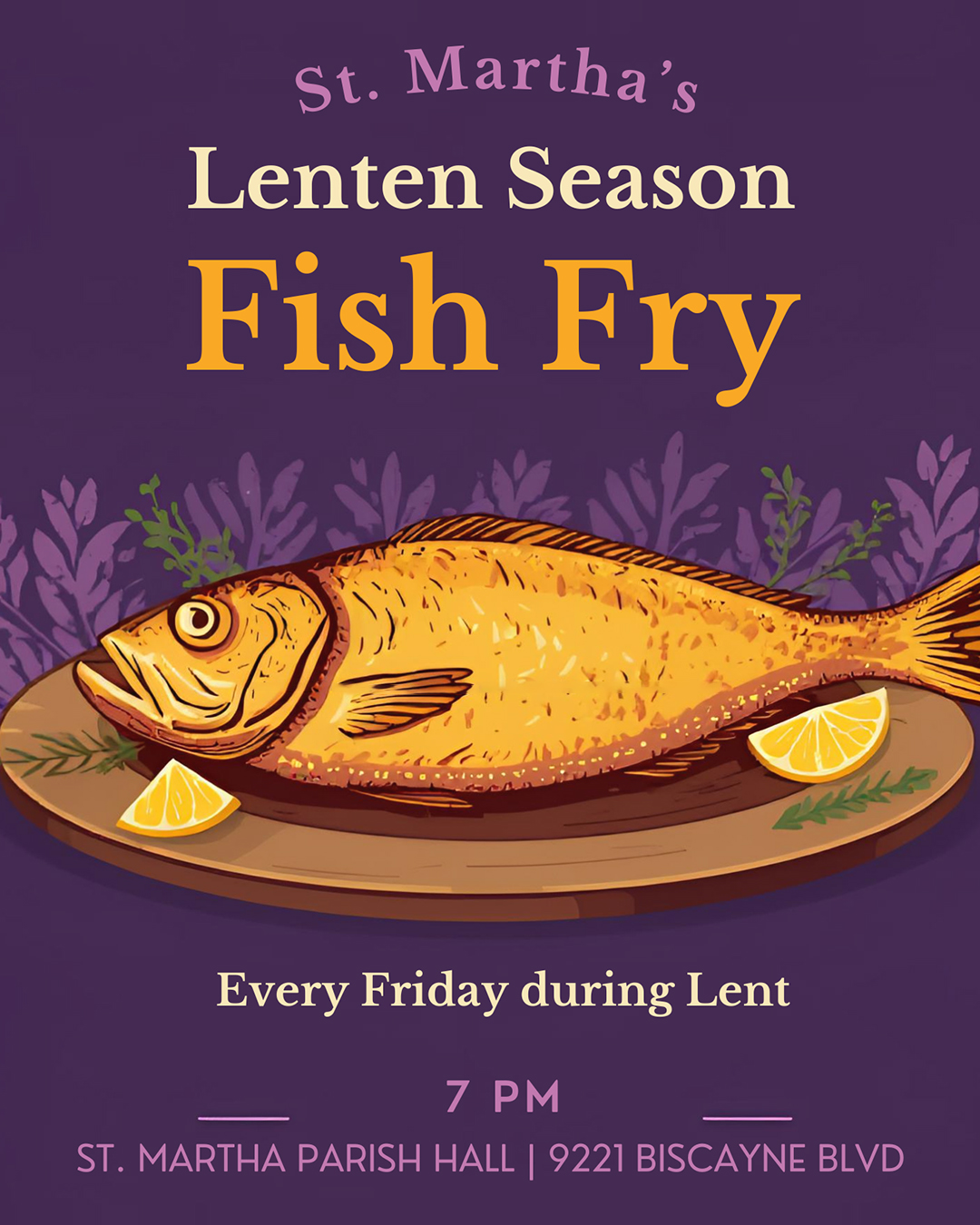
Every Friday during Lent
St. Martha Parish Hall | 9221 Biscayne Blvd.

Adoration and Confessions
St. Martha Catholic Church
A time for reflection, prayer, and reconciliation
---
Adoración y Confesiones
Iglesia Católica de Santa Martha

Next Meetings (Alternate Mondays):
Led by: Fr. Juan Carlos Salazar & Mike Palma.
Call the office to register now: (305) 751-0005
English Class
Meet at St. Martha Parish Center (9221 Biscayne Blvd.)
Clases de Español
Reunir en la cafeteria de la Arquidiocesis (9301 Biscayne Blvd.)
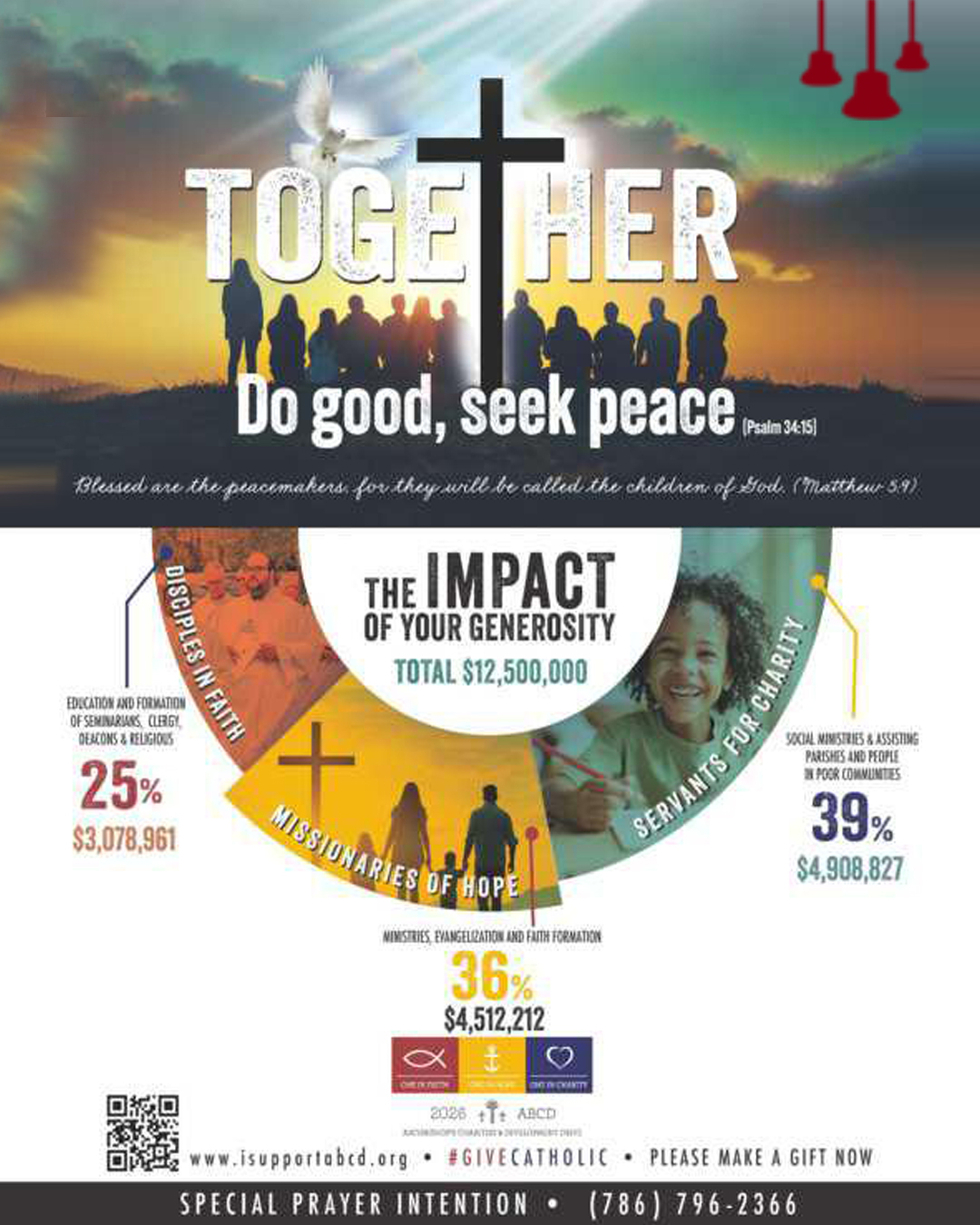
| Give Now / Donar en línea |
Your generosity to the ABCD helps countless individuals and families in need. When we give, we affirm that this is our Church, our mission to serve with heart and compassion.
Together, let’s be instruments of God's mercy and love. If you haven’t yet made your gift, there is still time.Together, let us do good and seek peace.
-----
Su generosidad con el ABCD ayuda a innumerables personas y familias necesitadas. Cuando damos, afirmamos que esta es nuestra Iglesia, nuestramisión de servir con corazón ycompasión.
Juntos, seamos instrumentos de la misericordia yel amor de Dios. Si aún no ha hecho su donación, todavía está a tiempo. Juntos, hagamos el bien y busquemos la paz.
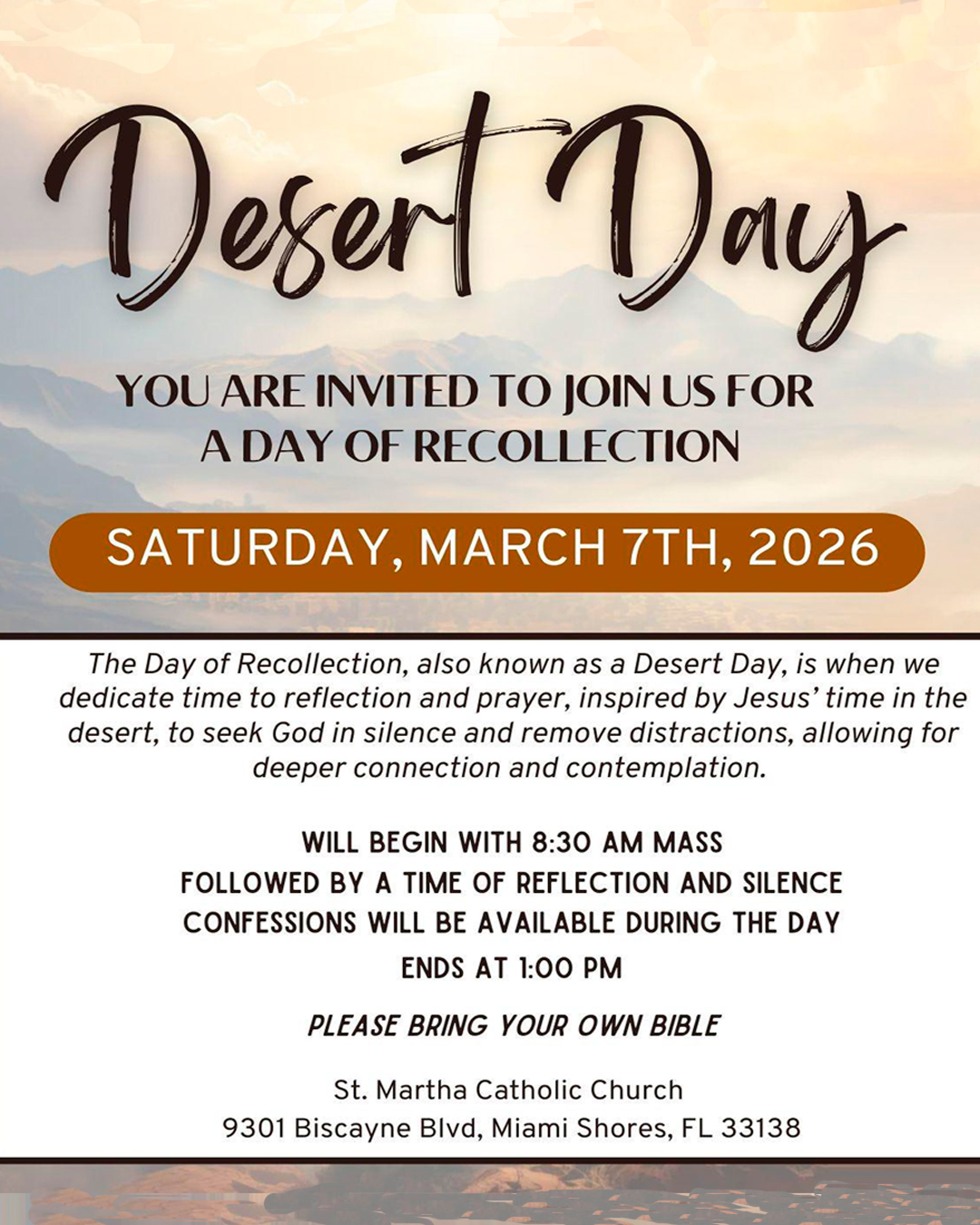
You are invited to join us for a Day of Reflection
The Day of Recollection, also known as a Desert Day, is when we dedicate time to reflection and prayer, inspired by Jesus' time in the desert, to seek God in silence and remove distractions, allowing for deeper connection and contemplation.
Will begin with 8:30 am mass followed by a time of reflection and silence confessions will be available during the day ends at 1:00 pm
Please bring your own bible.
St. Martha Catholic Church - 9301 Biscayne Blvd, Miami Shores, Fl 33138
For registration and more information, please call the parish office at (305) 751-0005.

Delicious homemade treats made with love.
- All proceeds support our Church -
Come and join us after each mass!
Once a month

Applications now available at the parish office!
To apply, must be:
| Apply Now |

Jesús te hace una invitación muy especial a salir de tu rutina diaria y cumplir el anhelo inmenso de amor que tiene tu corazón y que sólo Él puede hacer realidad, sólo Él puede darte ese amor tan grande que deseas.
Haga clic aquí para registrarse
Contactos: Paola Molina (305) 345-520 | Alexandra Sulbaran (786) 444-4059

Enjoy delicious homemade treats and food, made with love.
Dates:
We will have:
• Brownies • Cookies • Cupcakes • Bizochos • Postres • Arepas • Empanadas • Ron Cake • Bagels • And much more! •
Thank you for supporting our mission. Your collaboration makes a difference.
Disfruta deliciosos postres y comidas caseras, preparadas con amor
Fechas:
Tendremos:
• Brownies • Cookies • Cupcakes • Bizochos • Postres • Arepas • Empanadas • Ron Cake • Bagels • ¡Y mucho más! •
Gracias por apoyar nuestra misión. Tu colaboración hace la differencia.
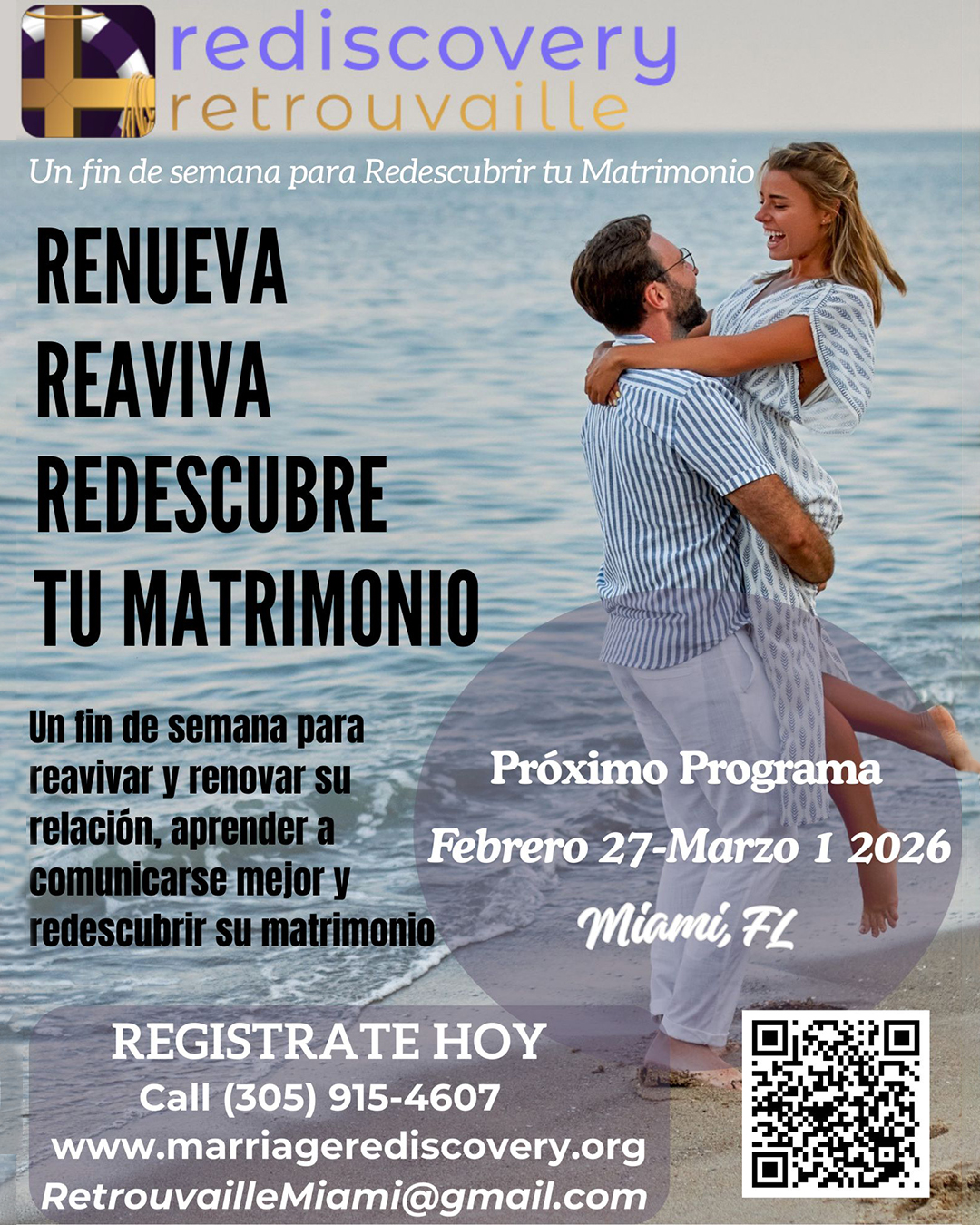
Renew • Reignite • Rediscover your marriage
A weekend to renew and reignite your relationship, learn how to communicate better and rediscover your marriage.
Upcoming Weekends (Miami, FL):
| Registration |
(305) 915-4607
RetrouvailleMiami@gmail.com
www.marriagerediscovery.org
Renueva • Reaviva • Redescubre tu matrimonio
Un fin de semana para reavivar y renovar su relación, aprender a comunicarse major y redescubrir su matrimonio.
Próximos fines de semana (Miami, FL):
| Registraciones |
(305) 915-4607
RetrouvailleMiami@gmail.com
www.marriagerediscovery.org
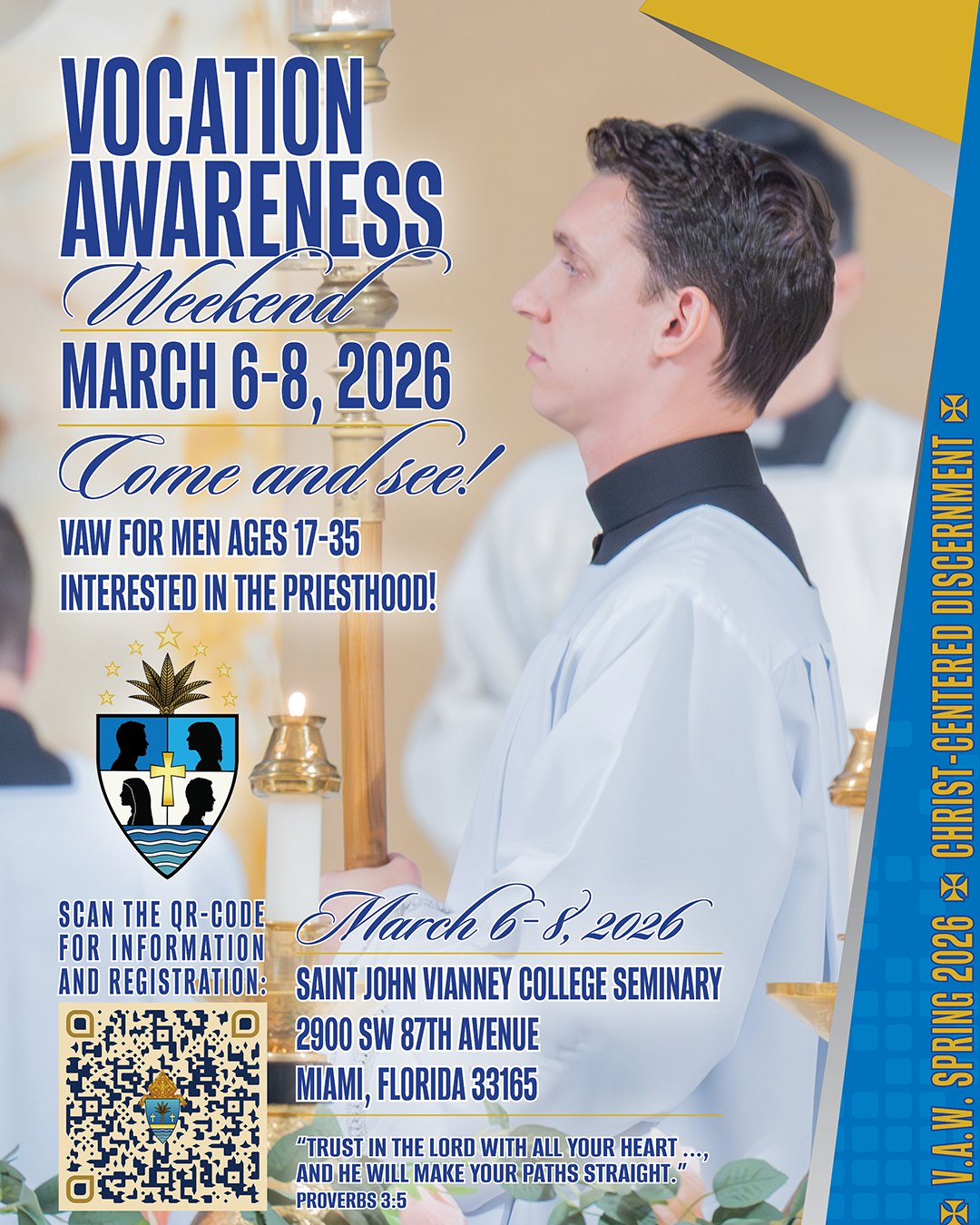
Saint John Vianney College Seminary
2900 SW 87th Avenue
Miami, Florida 33165
Come and see!
VAW for men ages 17-35
Interested in the priesthood!
"Trust in the Lord with all your heart ... and he will make your paths straight."
Proverbs 3:5
V.A.W. Spring 2026 Christ-centered discernment
| Register Here >> |
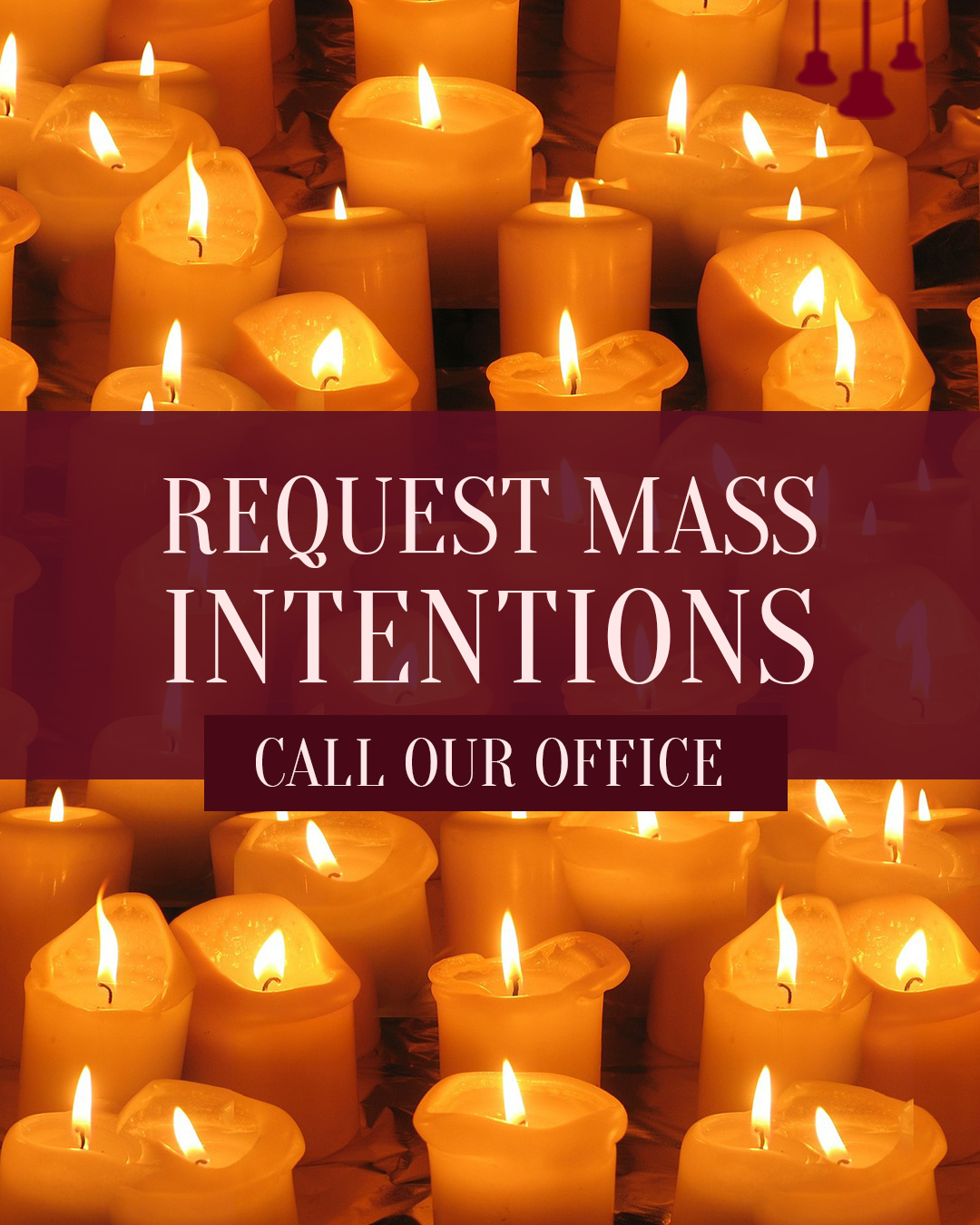
If you would like to request a Mass Intention for someone, please feel free to go to our Parish Office.
Office Hours:
For more information, call (305) 751-0005
Si desea solicitar una intención de Misa para alguien, no dude en acudir a nuestra Oficina Parroquial.
Horas de Oficina:
Para más información, llame al (305) 751-0005
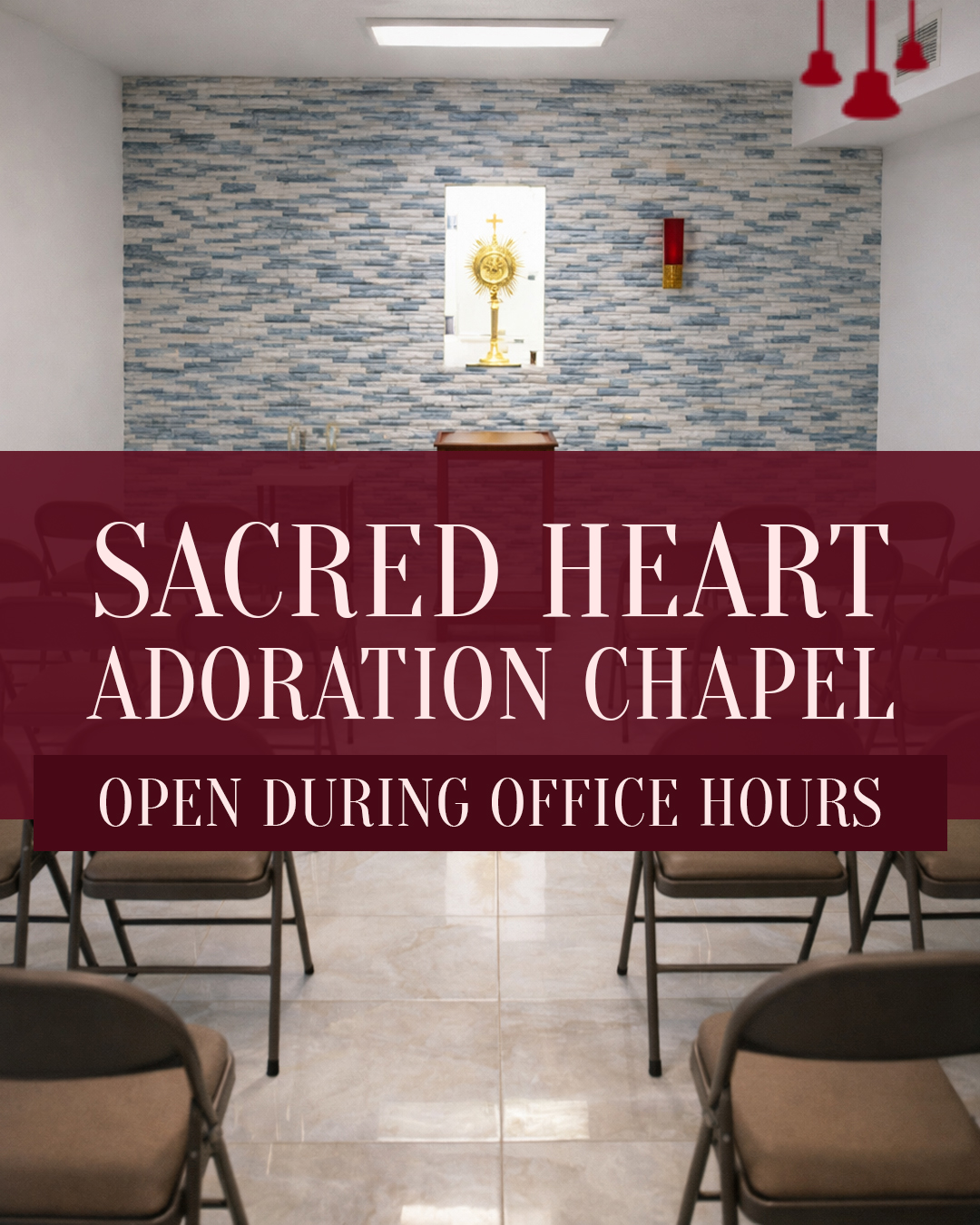
We are excited to announce that St. Martha's Sacred Heart Adoration Chapel is now open for Eucharistic Adoration.
Jesus is waiting for you!
Open during Parish Office Hours:
Located at St. Martha's Parish, 9221 Biscayne Blvd.
For questions, call the office: (305) 751-0005.
Estamos felices de anunciar que la Capilla de Adoración del Sagrado Corazón en Santa Martha ya está abierta para la Adoración Eucarística.
Jesús esta te esperando!
Abierto durante las horas de la Oficina Parroquial:
Ubicado en la Parroquia de Santa Martha, 9221 Biscayne Blvd.
Para preguntas, llame al oficina: (305) 751-0005.

The Respect Life Ministry of the Archdiocese of Miami is dedicated to protecting and upholding the dignity of every human life - from conception to natural death.
That's why we've chosen to do business with EveryLife Diapers, a 100% pro-life diaper company committed to the same mission.
Why Choose Everylife?
Your dollars make a difference.
Help protect life and provide for moms in need - one diaper at a time!
| Click here to Order and Receive 10% off! |
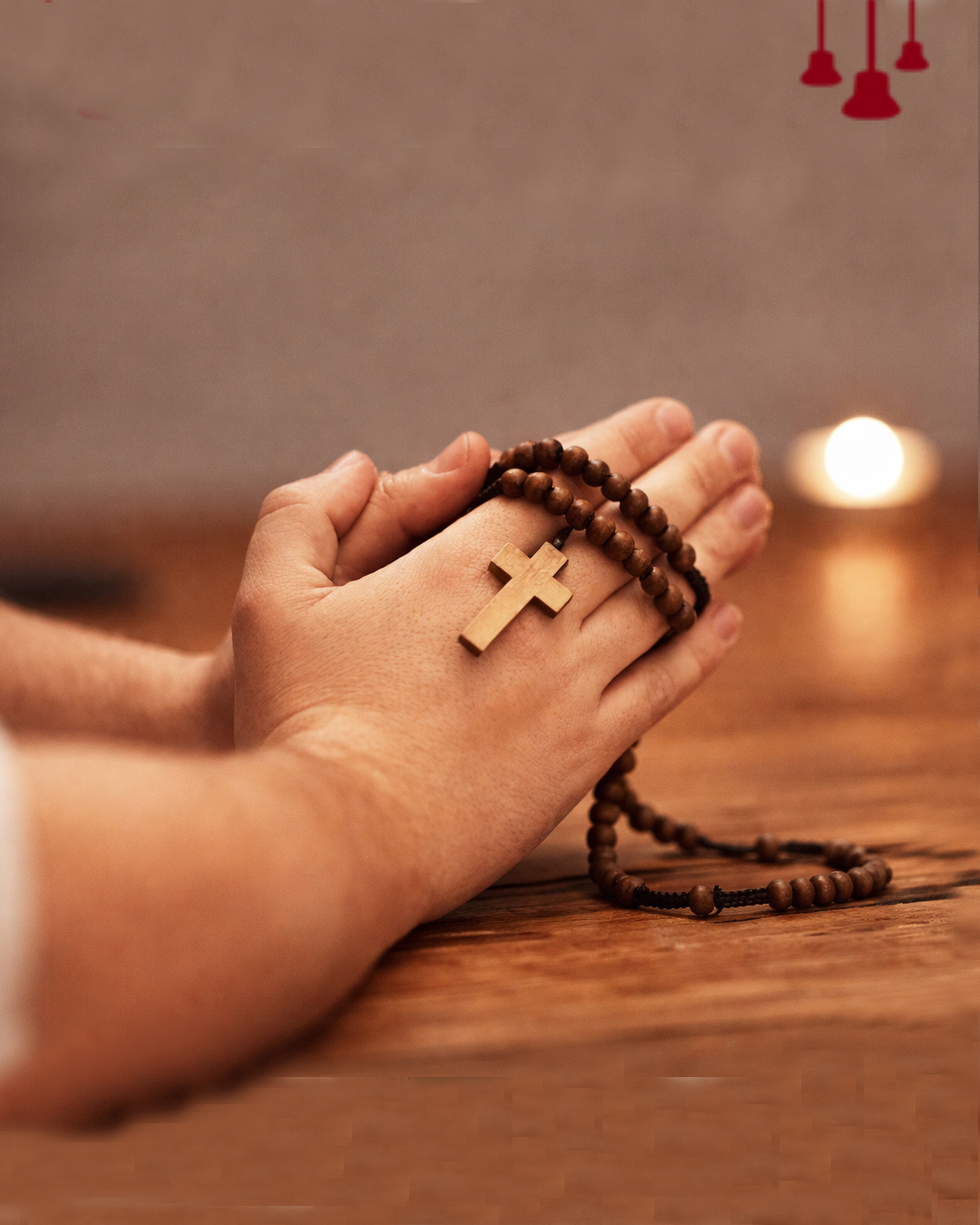
In Your goodness Lord, bless us. Help us to know Your abundance and Your gifts. Help us to hear Your voice and know Your assurance. Help us remember what You have done, and look forward to what You will do.
Amen.
En Tu bondad Señor, bendícenos. Ayúdanos a conocer Tu abundancia y Tus dones. Ayúdanos a escuchar Tu voz y conocer Tu seguridad. Ayúdanos a recordar lo que has hecho, y esperar con ansias lo que harás.
Amén.
.jpg)
Adoration every first Friday of the month
ACTIVITIES SCHEDULE
|
Alternate Mondays (Schedule varies - Call the office) |
7:30pm | Parish Center / Centro Parroquial |
|
Meets every first Tuesday of the month / Primer martes del més | 7:00pm - 9:00pm | Parish Center / Centro Parroquial |
|
Meets the forth Tuesday of the month / Cuarto martes del més | 7:00pm | Parish Center / Centro Parroquial |
|
Jueves | 7:00pm - 9:00pm | Parish Center / Centro Parroquial |
|
Meets every 3rd Wednesday of the month during School Year | 7:00pm - 9:00pm | Parish Center / Centro Parroquial |
|
Se reunen todos los Jueves | 7:30pm - 9:30pm | Salon Parroquial |
|
Meets the first Wednesday of the month / Reunión cada primer miércoles del més | 9:00am | Parish Center / Centro Parroquial |
| Bilingual Rosary every first Saturday / Rosario Bilingüe el primer Sábado del més | 7:45am | Church / Iglesia | |
|
Every Sunday during school year | 8:30 - 10:00 |